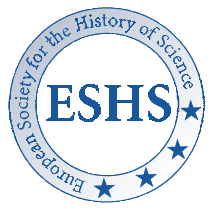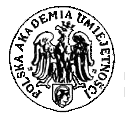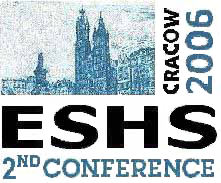Last modification: 25 September 2008
Online Book of Abstracts - A Thematic List:
SESSIONS / SYMPOSIA
Edited by Michal Kokowski
http://www.cyfronet.pl/~n1kokows/home.html
n1kokows@cyf-kr.edu.pl
Symposium R-6.
NATURAL SCIENTISTS IN THE HABSBURG MONARCHY 1848-1918:
CAREER PATHS AND MOBILITY
ORGANIZERS OF THE SYMPOSIUM:
Mitchell G. ASH (Vienna, Austria)
mitchell.ash@univie.ac.at
Juliane MIKOLETZKY (Vienna, Austria)
jmikoletzky@zv.tuwien.ac.at
CHAIRPERSONS OF SESSIONS OF THE SYMPOSIUM:
Mitchell G. ASH (Vienna, Austria)
mitchell.ash@univie.ac.at
Paulus EBNER (Vienna, Austria)
pebner@zv.tuwien.ac.at
Juliane MIKOLETZKY (Vienna, Austria)
jmikoletzky@zv.tuwien.ac.at
R-6.
The natural sciences in the late Habsburg monarchy: Institutions, networks, practices (Opening statement)
Mitchell ASH (Vienna, Austria)
mitchell.ash@univie.ac.at
It is generally agreed that the modern complex of scientific research institutions and research practices emerged in the nineteenth and early twentieth centuries. Recent research suggests that a number of processes were involved, including: the emergence of an expanding and ever more specialized network of research institutions, including university, extra-university state-funded and industrial laboratories; increasingly science-based professional training at higher education institutions; an increasing dependence of natural scientific research practices themselves on technology, particularly on specially designed instruments; a corresponding tendency to organize industrial research in a manner analogous to that of experimental laboratory research in the natural sciences.
All of these developments became increasingly visible in the Habsburg monarchy in the second half of the nineteenth century. The papers in this session focus in particular on how the emergence of an expanding network of research institutions and the increasingly science-based professional training at higher education institutions affected the careers and research topics of scientists.
This paper introduces the session by outlining what is known about this question at present and presenting a preliminary discussion of the central concepts involved. With regard to the category "mobility", in particular, the paper distinguishes several levels of meaning: geographic mobility; social mobility; and cultural mobility. Put as provocatively as possible, the paper asks: Was there such a thing as a university system in the Habsburg Empire, within which scientists circulated freely, or are words like "system" or "network" no more than names for a collection of more or less self-contained institutions or localities, with mobility taking place largely within these local contexts?
R-6.
Physicists and chemists at the University of Agriculture (Hochschule für Bodenkultur) in Vienna between 1890 and 1918
Paulus EBNER (Vienna, Austria)
pebner@zv.tuwien.ac.at
After the Austrian-Hungarian "Ausgleich" the University of Agriculture in Vienna was founded in 1872. The main goal of this university was to educate landholder's managers and teachers for secondary agricultural schools. First the agricultural section was established, in 1875 the section of forestry followed, and in 1883 the section of hydraulic engineering was founded.
Chemistry played an important role as a core discipline for all three sections, physics served as an ancillary discipline. Despite the importance of chemistry it was impossible to study chemistry or physics as a discipline at the University of Agriculture. Consequently all professors had been educated at other universities. Generally speaking, in this time graduates of the University of Agriculture usually had no career opportunities in the academic field.
The proposed paper will examine the professional biographies of chemists and physicists teaching at Vienna University of Agriculture between about 1890 and 1918, asking firstly for their own education, secondly for the career positions they had already reached when they changed to the University of Agriculture and finally for their professional biography after leaving this university.
R-6.
Physicists and chemists at the University of Lviv/Lemberg until 1918
Yurij HOLOVACH (Lviv, Ukraine)
hol@icmp.lviv.ua
Roman PLYATSKO (Lviv, Ukraine)
plyatsko@lms.lviv.ua
The first Head of the chair for experimental physics in 1872/91 was Tomasz STANIECKI (1826 - 1891). He graduated from Lviv University (1850), PhD (1858), Professor (1873), Rector (1890/91). Ignacy ZAKRZEWSKI (1860 - 1932) was the Head in 1892/1920. He graduated from Lviv University (1882), in 1887/91 at Krakow University, Professor (1893), Dean (1900/01).
The first Head of the chair for theoretical physics in 1872/99 was Oskar FABIAN (1846-1899), Member of German Leopoldina Academy in Halle. Marian SMOLUCHOWSKI (1872, Vienna - 1917, Krakow) was the Head of this chair in 1900/13; Rektor in 1911/12. He graduated from Vienna University (1894), Professor of Krakow University (1913/17). Konstancy ZAKRZEWSKI (1876, Warsaw - 1948, Krakow) in 1913/17 was Professor of Lviv University; in 1911/13 and from 1917 at Krakow University.
Professor Franz PLESS (? - 1905, Graz) was the first Head of the chair for chemistry of Lviv University in 1851/55. Professor Leopold von PEBAL (1826 - 1887) was the Head in 1857/65. Before 1857 he worked in Heidelberg and Strasbourg, in 1865/72 at the University of Graz. Edward LINNEMAN (1841 - 1886) in 1866/71 was Professor and Head of the chair for chemistry of Lviv University. From 1871 he worked in Brno and Prague.
The first Head of the chair for organic chemistry in 1895/1911 was Bronislaw RADZISZEWSKI (1838, Warsaw - 1914, Lviv). He graduated from Moscow University (1861), in 1870/72 Professor of Technical Institute in Krakow; 1872/1914 Professor of Lviv University, Rector (1882/83), founder of the Lviv school of the organic chemistry. His disciples: Prof. Bronislaw LACHOWICZ (1856 - 1903), Prof. Stanislaw OPOLSKI (1876 - 1918).
Stanislaw TO££OCZKO (1868 - 1935) graduated from Warsaw University (1892), in 1896/1905 at Krakow University, 1905/35 Professor of Lviv University. Zygmund WEYBERG (1872 - 1944) graduated from Moscow University (1897), in 1912/14 Professor of Lviv University.
R-6.
Physicists and chemists at the Vienna University of Technology around 1900: Mobility and carer patterns
Juliane MIKOLETZKY (Vienna, Austria)
jmikoletzky@zv.tuwien.ac.at
Physics and chemistry are among the fundamental set of disciplines represented at the Vienna University of Technology from the time of its foundation as "Polytechnical Institute" in 1815. But while Chemistry always was part of the technological core disciplines, physics served during most of the 19th century as an ancillary discipline for the technological sciences. Compared with traditional universities, education at technical universities generally aimed primarily at qualifying students for a leading position in industry, and consequently research was also more application-oriented.
Despite these differences, fluctuation of students and scientists between technical universities and traditional universities in Austria was frequent. Therefore, career opportunities for graduates of technical universities ranged from industrial jobs to positions as academic teachers, and also as teachers in the expanding field of secondary and higher vocational schools. A combination of two or more of these was not unusual and therefore will have to be taken into account when the career paths of graduates from technical universities are investigated.
The proposed paper will examine the professional biographies of chemists and physicists teaching at Vienna University of Technology between about 1880 and 1918, asking firstly for their regional mobility: at the local level, among the three academic institutions then existing in Vienna (the University of Technology, Vienna University, and the University of Agriculture), regional and inter-regional mobility among academic institutions in various parts of the monarchy, and finally mobility from and to academic institutions in the monarchy and other countries.
Secondly, aspects of their social mobility will be examined, using information on their social background, the combination of fields of professional activity, and the career positions reached in the academic field. In this context, also the special research subjects or sub-disciplines of the scientists have to be included.
The paper generally aims at defining mobility and career patterns for graduates of the Vienna University of Technology during late 19th and early 20th centuries.
R-6.
Scientists and mathematicians at Czernowitz University before 1914
Robert ROSNER (Vienna, Austria)
robert.rosner@tele2.at
Czernowitz University was founded in 1875 by a decision of the Diet of "Cisleithanien" with 3 faculties, Theology Philosophy and Law The Liberal Party wanted to establish a fifth German language university in addition to the four existing universities - Vienna, Prague, Graz and Innsbruck - in order to keep up the German hegemony in the Habsburg Empire, after Lemberg University had become a Polish university in 1870.
Therefore it was decided to have German as the sole language for teaching, although only 20 % of the population of the province Bucovina, whose capital Czernowitz was, spoke German as their mother tongue and the rest mainly Rumanian and Ukrainian.
Some prominent members of the Diet expressed their doubt in the debate which led to the foundation of Czernowitz University, whether it would be possible to find qualified scientists, who would be willing to go to a university in a backward region and to remain there for a longer period.
Most professors, who came to Czernowitz, were still rather young, some of them less than 30 year old. It can be seen that in some departments talented young scientists received soon a call to other universities, but in other departments some well known professors remained for decades, in some cases up to their retirement. The professors, who left Czernowitz, continued usually their career in Innsbruck or in Graz . Some came later to Vienna but never directly from Czernowitz.
Only at the department of mathematics there was in the beginning a frequent change. The first professors of mathematics were young when they came to Czernowitz, and continued their career in Graz, Innsbruck and finally in Vienna, Some very renowned mathematicians, who came later to Czernowitz, remained there for a long time. In the departments of Theoretical Physics, Experimental Physics, Cosmic Physics and Chemistry the appointed professors, remained in Czernowitz for a long period.
R-6.
On searching national and scientific identities: Philipp Lenard's early career in Austria-Hungary, Germany and the Anglo-Saxon world
Arne SCHIRRMACHER (Munich, Germany)
A.Schirrmacher@deutsches-museum.de
Although Bratislava born Philipp Lenard is much more well-known as the archetype of an nationalistic scientist his early career nonetheless identifies him as a scientific internationalist. Educated in Hungarian schools, the universities in Vienna and Budapest Lenard still entertained a certain display of Hungarian identity during his doctoral studies both at Berlin and Heidelberg. Furthermore his plans for careers in England or the United States show a science driven pattern of geographic migrations mostly for reasons of local conflicts.
Based on Lenard's recollections, his private diaries and his notebooks, the talk will discuss the relations of Lenard's geographic migrations and his scientific and ideological resettlements in denouncement of mathematics and theory as well as nationalism and anti-Semitism.
R-6.
Searching for excellence. Appointments to chairs at the Medical Faculty of Vienna University during the 2nd half of the 19th Century: Strategies for success or political Programs?
Felicitas SEEBACHER (Klagenfurt, Austria)
felicitas.seebacher@uni-klu.ac.at
The University of Vienna as a turntable of Science in the heart of Europe has always moved between innovation and tradition. The attempt by its medical faculty, to reach a leading position in this area of conflict, depended not only on the qualifications of the professors but also on their personalities. Scientists who were appointed to their Chairs were not necessarily the most innovative or leading scientist of the time, but rather they held views which were accepted by the Habsburg Monarchy and Catholic church. As Susanne Perglau-Hämmerle defined it, political "attitude examinations" decided appointment procedures.
After the 'doctor revolution' of 1848 in Vienna, the decision makers realised that an urgently needed improvement of the university structure could only be achieved by an 'open door' policy. A year later, the physiologist Ernst Wilhelm Brücke was appointed from Königsberg, and with further appointments from Germany, the Viennese Medical School was able to create a centre of knowledge. In 1863 the pathologist Carl Rokitansky was appointed as a medical study adviser to the Ministry of the Interior. He recommended that all 'German' universities should cooperate tightly in order to reach a higher standard. With the decision of the governement and the academic staff, to appoint the surgeon Theodor Billroth from Zürich, this course was clearly furthered. Other nationalities and Jews were increasingly hindered to pursue careers at Vienna Medical School. The boycott against the pathologist Salomon Stricker, the attacks on Johann Schnitzler's 'Poliklinik' and the delay of the appointment of Sigmund Freud were all clear examples of this.
This paper will show the various appointment policies the Habsburg Monarchy undertook at the medical faculty of the University of Vienna during reactionism, liberalism, and nationalism. Furthermore, it will examine the selection criteria of the Collegium of Medical Professors - whether certain political lobbies influenced the decisions making process or whether the Ministry of Education based their selection purely on qualifications.
R-6.
Mobility of chemistry professors of the Prague Charles Ferdinand University at the turn of the 19th century; where and why?
Sona STRBANOVA (Prague, The Czech Republic)
sonast@atlas.cz
The paper investigates the careers of 19 chemistry professors at the medical and philosophical faculties of the German and Czech universities in Prague in the years 1890-1910. The data indicate that Prague represented for many newcomers opportunity of habilitation or full professorship. For more than a half of persons in view, Prague was their first university appointment and also a place where they studied. The other location, where mostly the Germans got their expertise before coming to Prague, was Vienna, while the Czechs preferred the German, French and British universities. Only 10 professors left their alma mater, some of them just temporarily; the new workplace was usually another university in the Czech Lands or some Austrian or German university. The data have not confirmed the often-diffused opinion that Prague was only a changing station for German professors before leaving for Vienna or some German university.
The reasons of studies abroad were increase of expertise and getting prestigious degree; the Czechs' preference of the German universities had probably no political connotation. The Czech professors changed universities only rarely. This "stability" has a social and political context. The transfer of the Prague German chemistry professors for universities in Austria and Germany was usually motivated by an opportunity of getting a higher position or a department. Only a deeper analysis of the sources may disclose whether they considered Prague inferior place for their careers and what circumstances made them to leave.






